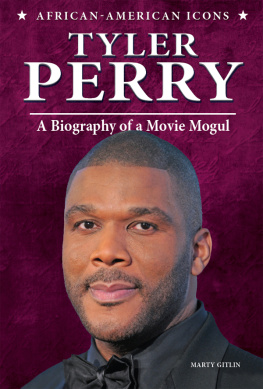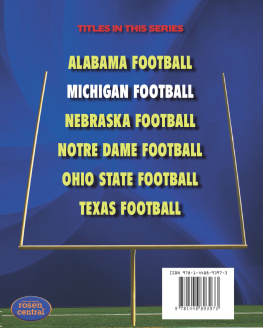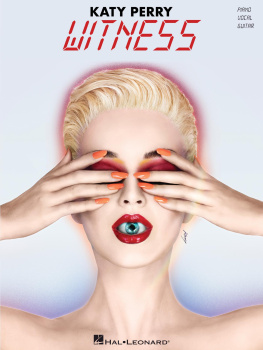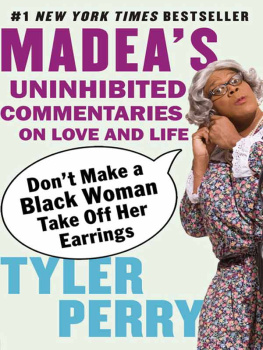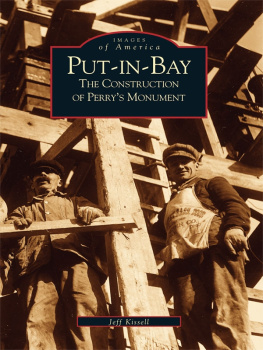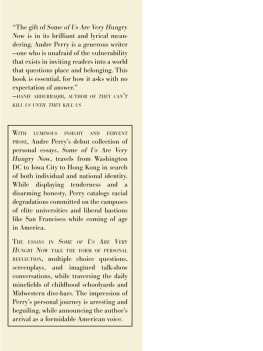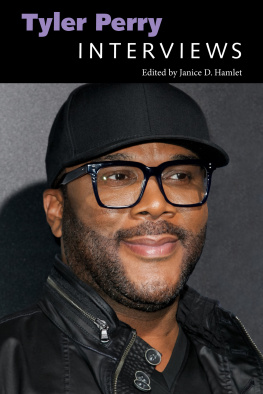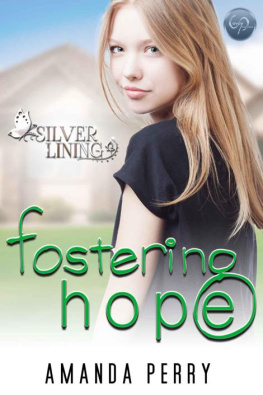From the Bottom to the Top!
Tyler Perry's path to success was anything but easy. His childhood was marred by constant abusephysical and emotional. To escape from the pain, Perry found an outlet in writing. But the first play he wrote did not draw huge audiences. Even after years of failure, Perry never quit. He forged ahead, committed to getting his message out. And he sure did! Perry, now with many hit movies and television shows to his credit, is one of the biggest stars in Hollywood. Author Marty Gitlin explores the amazing life of this entertainment icon.
ABOUT THE AUTHOR
Marty Gitlin is a sportswriter who has won more than forty-five awards in his career. He has written several books on topics ranging from sports to history.

Two paths lay before Emmitt Perry, Jr. He was in his early twenties and standing at the crossroads.
He could let his anger control his emotions and prevent him from reaching his potential. Or, he could turn his rage into compassion and forge a new and productive life.
One might understand if he stumbled down the road of self-destruction. There was much to overcome. He had been horribly abused by his father, who had beaten him savagely and without cause for many years. He had been sexually molested as a child by both men and women. Few could blame him if he wallowed in misery and resentment.
But Perry chose the path of forgiveness. He could not forget the terrible cruelty of those who mistreated him. It was too fresh in his mind. He could still feel the pain and shame. So he decided to use those agonizing experiences for emotional healing and professional fulfillment.
He had made the first symbolic gesture years earlier by separating himself from his father, Emmitt Perry, Sr. The younger Perry did not want to share the same first name as his father. At age sixteen, he changed his name to Tyler.
Several years passed. Despite the new name, Tyler Perry felt the same anger as Emmitt Perry, Jr. He needed an outlet for the bitterness that remained inside of him. It was fortunate that he happened to flip on the television one fateful day in his early twenties. He began listening to iconic talk show host Oprah Winfrey. He heard a guest explain the positive emotional effects of writing.
Something inside Perry became unleashed. He began to believe he could heal by expressing his feelings through the power of the pen. At the age of twenty-two, he started writing a series of letters to himself. He sought liberation from all his anger.
Perry did not only remember the thrashings at the hands of his father and the sexual abuse that had haunted him to that day. He also recalled the few pleasant moments of his youth, such as when his mother gave him refuge from his fear by taking him to church. It was there he felt a sense of peace and contentment. As he embarked on taking personal responsibility for his therapy, he embraced a strong belief in God and the power of religion. It would help him through the darkest periods of young adulthood.
The words of wisdom he wrote to himself became the basis of his first play, a musical appropriately titled I Know Ive Been Changed. The work was not only an attempt to make money and plant the seeds for a career. It also served as a message of hope for others who had been abused. Perry felt that relieving the emotional agony of those who shared his experiences would aid him in relieving his own pain. He explained his thoughts in a 2009 interview with Essence Magazine. Once a bad thing has happened to you, you can be completely ashamed of it and it can destroy you, or you can take the power out of it by using it as a teaching tool to help others, he said.
The message of his play centered on forgiveness and self-respect. It also explored other issues, such as child abuse. It provided therapy for Perry, but it did not provide badly needed financial helpat least not at first. In 1990, Perry moved from New Orleans, Louisiana, to Atlanta, Georgia, where he spent his life savings of $12,000 earned from various low-paying jobs to finance the play.
He did not just put all his money into I Know Ive Been Changedhe invested his heart and soul. He composed the music, designed the sets, and starred onstage when it finally debuted in a community theater two years later. Every night, fewer patrons showed up. He lived out of his car for three months in an attempt to keep the show alive. But it was to no avail. The play was a critical and financial flop.
Perry remained undaunted. He refused to accept failure. He believed in his talent. He toiled over the next six years to make the play stronger. It reappeared at the House of Blues in Atlanta in 1998. He promoted it tirelessly within the black community. It was the last hope for I Know Ive Been Changed.
The result was a smash hit. The play sold out on opening night. The crowds that besieged the venue forced it into the larger Fox Theater. Soon, the play was being produced in other major American cities, including New York.
Perry did not look in the mirror to find the reason for his success. He credited God, whom he believed had granted him good fortune for forgiving his father. Perry would consider the wealth, fame, and satisfaction a blessing from above for the rest of his career.
His religious awakening and desire to continue helping those who had been abused led him to his next project in 1999, a gospel-driven musical titled Woman, Thou Art Loosed. Perry adapted the work from a book written by Texas evangelist T. D. Jakes. It revolved around a woman seeking to recover from mistreatment, drug addiction, and poverty. Perry would never have to worry about poverty again. The play grossed $5 million.
He was just warming up. His next work launched a character with whom he would be identified for years to come. The creation of a grandmotherly figure named Mabel Madea Simmons was based on his mother and several other women in his life. There was something unique about how she was presentedPerry played the role himself as he donned a wig, a polka-dot dress, and thick glasses.
The fictional character commonly referred to as Madea, who first appeared in the 2000 play I Can Do Bad All by Myself, has been a fixture in Perry productions for more than a decade. The gun-toting grandma is noted for her toughness, profane language, and vengeful nature. She threatens violence against those she believes have wronged the people she loves. Her lack of education becomes apparent when she mispronounces words. She has found herself in court, anger management classes, and even jail. But she is motivated only by her affection for family and friends. She wants to create what she perceives is a better society. She is the moral compass in all the Perry works in which she appears.
Perry conceived of the name Madea by combining the words mama and dear. She is one of the most controversial figures in the history of African-American media. Some critics have complained that she is a negative stereotype of African Americans. They claim her ignorance and violent tendencies are a poor reflection on African-American women and black people in general. They have criticized African Americans who have flocked to theaters to watch Madea and increased the ratings of television shows in which she has been cast.
Perry has countered with anger and resentment. He has defended patrons of his plays and films starring Madea. He believes that nobody has the right to tell his fans what to watch or condemn their taste in entertainment. His supporters have offered that Perry is simply seeking to evoke laughter while providing good lessons in morality. They stress that his work is not intended to be a statement about African-American life.

